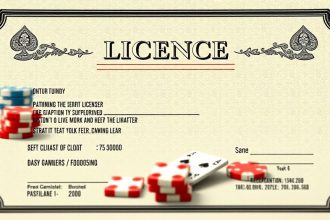Ontario leads Canada’s online gambling landscape with its regulated iGaming market, managed by iGaming Ontario (iGO), a subsidiary of the Alcohol and Gaming Commission of Ontario (AGCO). Launched in April 2022, this framework has matured by October 2025, hosting over 80 licensed operators and generating $1.5 billion in revenue in Q2 2025 alone, a 25% year-over-year increase. Unlike other provinces, where offshore sites dominate due to limited local regulation, Ontario mandates that all online casinos and sportsbooks obtain AGCO registration and an iGO operating agreement to serve residents legally.
Core Regulatory Requirements
Operators must comply with stringent standards to secure and maintain licenses. Key mandates include:
- Player Protection: Implementation of responsible gambling tools, such as deposit limits, self-exclusion, and reality checks. By 2025, AGCO requires AI-driven monitoring for high-risk behaviors, with 95% of operators using automated alerts to prevent problem gambling.
- Game Fairness: All games undergo RNG certification from labs like eCOGRA or iTech Labs, ensuring RTPs of 92-98% for slots and table games. Live dealer streams must be audited for real-time integrity.
- Payment Security: Support for CAD transactions via Interac, credit cards, and crypto, with segregated player funds. Minimum deposit is CAD 10, and withdrawals process within 24-48 hours, capped at CAD 10,000 weekly for non-VIP accounts.
- Advertising Restrictions: No targeting of minors or vulnerable groups; recent Senate Bill S-211 influences provincial ad limits, reducing youth exposure by 15% in 2025.
- Taxation: Operators pay 20% of gross gaming revenue (GGR) to iGO, funding provincial services. Player winnings remain tax-free for recreational gamblers, unlike professional earnings.
Non-compliance results in fines up to CAD 500,000 or license revocation, with AGCO revoking three licenses in 2024 for AML violations.
Licensed Operators and Market Dynamics
iGO’s directory lists 85+ operators by mid-2025, including global giants and local partnerships. Key players:
- Bet365 and FanDuel: Dominant in sports betting, offering 500+ casino games with 96% average RTP. They hold 35% market share, emphasizing live dealer blackjack and roulette.
- PokerStars and 888 Casino: Focus on poker and slots, with 1,000+ titles from providers like NetEnt and Pragmatic Play. Exclusive Ontario bonuses include 100% matches up to CAD 500.
- OLG Play: The provincial lottery’s online arm, providing exclusive lotteries and slots, capturing 20% of traffic with CAD 10 minimums and instant payouts.
- Crypto Operators: Platforms like Stake.ca integrate BTC and ETH deposits, licensed under AGCO for secure blockchain transactions, appealing to 15% of tech-savvy users.
Market growth stems from single-event sports betting legalization in 2021, with iGaming revenue hitting CAD 14 billion annually. Operators must adhere to data privacy under PIPEDA, encrypting user info with SSL/TLS 1.3.
Challenges in Ontario’s Model
Despite success, issues persist: Offshore sites still attract 40% of players with lower taxes and higher bonuses, evading AGCO oversight. Problem gambling rates rose 5% post-launch, prompting enhanced tools. Interstate competition from provinces like British Columbia, with its PlayNow platform, fragments the national market.
Ontario’s iGaming regulations set a benchmark for Canada, balancing revenue with protection. Licensed casinos ensure fair play and secure transactions, but players must verify AGCO registration. For Ontarians, sticking to iGO-approved sites minimizes risks in 2025’s regulated environment.








